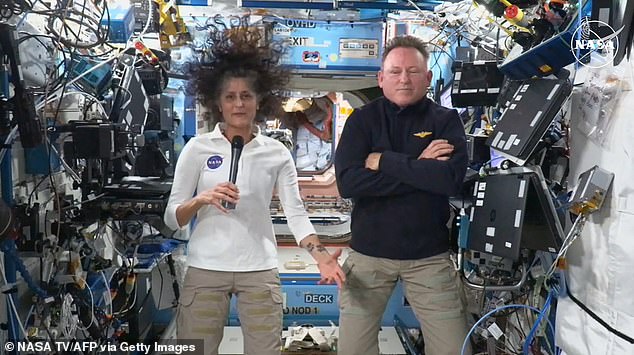
Over-Sterilized Space Station Traps NASA Astronauts, Posing Health Risks
ISS’s Extreme Cleanliness May Harm Astronauts’ Health, Study Finds
The International Space Station (ISS), where NASA astronauts Sunita Williams and Barry Wilmore were stranded for nine months, is so sterile that it could be causing health issues for crews. New research suggests the lack of microbial diversity aboard the station may weaken astronauts’ immune systems, leading to skin rashes, infections, and inflammation during long missions.
The Problem: Too Clean for Comfort
On Earth, humans coexist with trillions of microbes, many of which are essential for health. These “good” bacteria support digestion, immune function, and inflammation control. However, the ISS’s ultra-clean environment—maintained through rigorous disinfection—lacks this microbial diversity. Instead, the station’s microbiome is dominated by bacteria brought by astronauts, with surfaces saturated in cleaning chemicals.
[Image: Astronauts Sunita Williams and Barry Wilmore inside the ISS]
Study Findings: A Sterile, Chemical-Rich Environment
Researchers analyzed 803 surface samples from the ISS, creating a detailed map of its microbiome and chemical residues. They found:
- Human skin-associated microbes were most common.
- Disinfectants and cleaning agents coated nearly every surface.
- Microbial diversity was alarmingly low, resembling hospitals or isolated urban buildings rather than natural environments.
Areas like dining modules hosted food-related microbes, while restrooms had waste-associated bacteria. However, overall diversity was suppressed by high disinfectant use. “Sterile environments aren’t the safest,” said study co-author Rob Knight. Exposure to beneficial microbes, he notes, is crucial for health.
[Image: Microbial samples from the ISS compared to hospital environments]
Health Risks in Space
Astronauts on long missions often face immune dysfunction, fungal infections, and shingles. The study links these issues to the ISS’s sterile conditions, which may prevent the immune system from functioning optimally. Without Earth’s diverse microbes, astronauts’ bodies struggle to regulate defenses.
Solutions: Balancing Cleanliness and Microbial Health
The team suggests introducing controlled microbial diversity to space habitats. This doesn’t mean compromising hygiene but integrating beneficial bacteria, similar to probiotics. “We need companions that help sustain ecosystems in space,” said co-author Rodolfo Salido. Potential strategies include:
- Delivering soil-derived microbes.
- Designing spacecraft materials that host helpful bacteria.
[Image: Illustration of beneficial microbes in the human gut]
Challenges Ahead
Before introducing microbes, researchers must assess risks. Space radiation could accelerate genetic mutations in bacteria, and low diversity might let harmful species overgrow. Ground-based testing is crucial. “We can’t just take a slice of Earth’s microbiome and hope it works,” Salido emphasized.
Conclusion
The study highlights a paradox: excessive cleanliness in space may harm astronaut health. Future missions to the Moon, Mars, or beyond will need to balance sterility with microbial diversity to ensure crew well-being. As Knight noted, “We evolved with these microbes. Removing them entirely isn’t the answer.”
(Word count: ~600)
Note: Image placeholders indicate where visuals could enhance the article (e.g., astronauts on the ISS, microbial comparisons, probiotics).


